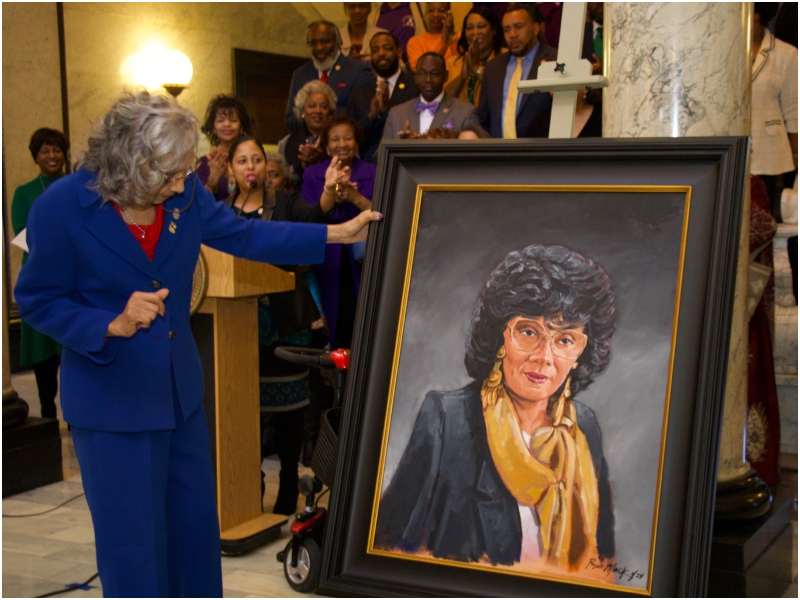Former Mississippi Representative Alyce Clarke, the first Black woman to serve in the state’s legislature, now has her portrait prominently displayed in the Mississippi Capitol, marking a historic moment for representation in the state’s political history.
During a ceremony on Tuesday, Clarke, an 84-year-old Democrat from Jackson, was honored as her oil painting was unveiled in the room where the House Education Committee meets. The event was attended by fellow lawmakers, friends, and supporters who celebrated Clarke’s trailblazing legacy.
Clarke served an impressive 39 years in the Mississippi Legislature before choosing not to seek reelection in 2023. Reflecting on her journey, she expressed gratitude to those who supported her throughout her career, emphasizing that her achievements were the result of collective effort rather than individual accomplishment.
The portrait, painted by artist Ryan Mack, is based on a mid-1980s photo of Clarke and pays homage to her significant contributions, particularly in the realms of education and nutrition programs.
Clarke’s entry into the Mississippi Legislature in 1985 marked a pivotal moment in the state’s history, as she became the first Black woman to hold such a position. Her election paved the way for subsequent Black women to join the legislature, although women, including Black women, still remain a minority in both chambers.
Throughout her tenure, Clarke championed various causes, including the establishment of Born Free, a treatment center for pregnant women struggling with drug and alcohol addiction. She also played a crucial role in establishing Mississippi’s first drug courts and advocating for the creation of a state lottery, which ultimately became known as the Alyce G. Clarke Mississippi Lottery Law.
Clarke’s commitment to her alma mater, Alcorn State University, was also highlighted during the ceremony, with Democratic Representative Robert Johnson of Natchez praising her relentless advocacy for the historically Black institution.
As Clarke’s portrait now graces the walls of the Mississippi Capitol alongside those of former governors and House speakers, it serves as a lasting tribute to her groundbreaking legacy and a symbol of progress in the state’s ongoing journey toward inclusivity and representation in government.

